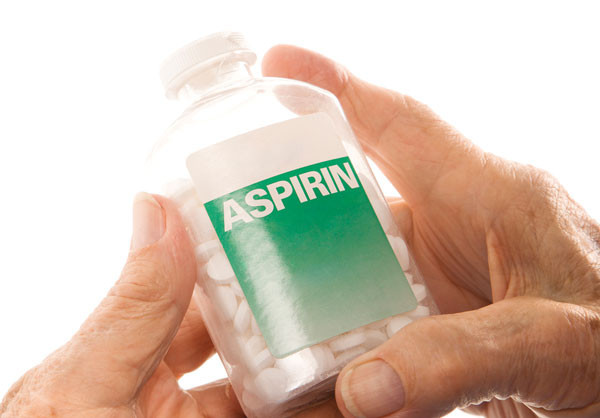
5 timeless habits for better health

What are the symptoms of prostate cancer?

Is your breakfast cereal healthy?

When pain signals an emergency: Symptoms you should never ignore

Does exercise give you energy?

Acupuncture for pain relief: How it works and what to expect

How to avoid jet lag: Tips for staying alert when you travel

Biofeedback therapy: How it works and how it can help relieve pain

Best vitamins and minerals for energy

Should you take probiotics with antibiotics?
Medications Archive
Articles
Should I worry about a sudden swollen tongue?
On call
Q. What would cause my tongue to suddenly swell? Could this be a possible side effect of medication, or something else?
A. There are many reasons for a swollen tongue. Indeed, a reaction to a medication is one of the more common causes. For example, a well-known side effect of ACE inhibitors (a class of drugs used to control blood pressure) is a condition called angioneurotic edema. Swelling of the face, lips, and tongue can happen quickly in people who take an ACE inhibitor. The reaction may occur soon after it's first taken or at any time thereafter. Sometimes people get this reaction even though they have used the drug for several years. ACE inhibitors are more likely to cause angioneurotic edema in African Americans.
The new-old way to treat gout
New guidelines suggest doing more of the same. The problem is that many people don't.
You never forget your first gout attack. The severe pain, swelling, and redness hits hard and fast. The initial attack often strikes your big toe's large joint, but later ones might affect the foot or ankle. Other hot spots include the knees, hands, and wrists.
First-line treatment is quite effective and includes anti-inflammatory medications, ice therapy, and rest. A combination of diet and lifestyle changes and prescription drugs — an approach called urate-lowering therapy, or ULT — is typically recommended if attacks recur or become more severe.
Are you taking too many medications?
Peer into your pillbox: It may be time to streamline your drug regimen.
Medication regimens often start simply, perhaps with a multivitamin and a single prescription drug to treat a chronic condition. But with age and more health problems, a regimen may grow to include additional prescription drugs and dietary supplements (such as vitamin D and calcium), plus over-the-counter medicines to reduce symptoms such as pain or heartburn. In time, you can find yourself facing a crowded pillbox and a complicated regimen.
"Among people age 62 to about 85, a third will take five medications per person. In the higher-risk population that I take care of, those people average 15 medications per person. And some of the dialysis patients take about 20 prescriptions," says Joanne Doyle Petrongolo, a pharmacist at Harvard-affiliated Massachusetts General Hospital.
Use topical painkillers for strains and sprains
In the journals
Hold off on taking pain pills to treat a sprained ankle, strained neck, or bruised knee. A new guideline from the American College of Physicians and the American Academy of Family Physicians recommends certain topical (gels, liquids or patches placed on the skin) painkillers as the first line of defense for musculoskeletal injuries in areas other than the lower back. The new guideline, published online Aug. 17, 2020, by Annals of Internal Medicine, was based on a review of more than 200 studies including a total of 33,000 patients with short-term injuries (pain lasting less than four weeks). It recommends using a topical nonsteroidal anti-inflammatory drug (NSAID) with or without menthol (which creates a cooling sensation). Topical NSAIDs come in gel, liquid, or patch forms; diclofenac gel (Voltaren Arthritis Pain) and aspirin cream are available without a prescription. Topical NSAIDs may have fewer risks than oral NSAIDs, which raise risk for stomach ulcers and bleeding, high blood pressure, kidney damage, and heart attacks. However, if topicals don't work, the guideline says you can move to oral NSAIDs such as ibuprofen (Advil, Motrin) or the non-NSAID painkiller acetaminophen (Tylenol); acupressure; or transcutaneous electrical nerve stimulation. The guideline recommends against using opioids such as tramadol (Ultram) except in severe cases.
Image: Victor_69/Getty Images
Is it safe to reduce blood pressure medications for older adults?
Urine color and odor changes
Surprising factors influence urine color and odor including food and medication
Many things can alter the look and smell of your urine. When should you be concerned?
Nearly six and a half cups — that's how much urine the average person produces a day, usually in four to eight trips to the toilet. The ritual is so routine that most of us pay little attention to our urine — that is, unless it happens to look or smell different than usual.
Aspirin and your heart: Many questions, some answers
Taking an aspirin can protect you from heart attack, blood clots and more
First marketed by the Bayer Company in 1897, aspirin (acetylsalicylic acid) is one of our oldest modern medications — and its parent compound is much older still, since Hippocrates and the ancient Egyptians used willow bark, which contains salicylates, to treat fever and pain. Over the past 100 years, aspirin has made its way into nearly every medicine chest in America. Indeed, this old drug is still widely recommended to control fever, headaches, arthritis, and pain.
Although aspirin remains an excellent medication for fever and pain, other drugs can fill these roles equally well. But aspirin has a unique role that was not even suspected by its early advocates. In patients with coronary artery disease, aspirin prevents heart attacks.
Does aspirin stop a heart attack?
Ask the doctor
Q. Should I take aspirin if I think I'm having a heart attack, and what kind of aspirin should I take?
A. First, what symptoms indicate you might be having a heart attack? The main symptom is a squeezing, tight sensation in the middle of the chest that can travel up into the jaw and shoulders, and even down the left arm. Along with the pain you may begin to sweat and to feel weak, like you might pass out, and be short of breath. While other conditions besides a heart at-tack can cause similar symptoms, you need to take such symptoms very seriously. First, call 911.
Study finds weak link between birth control and breast cancer
Overall risk is very small, and older women who used hormonal contraceptives many years ago aren't likely to have a higher risk.
Image: © designer491/Getty Images
Hormonal birth control — whether it comes as pills, injections, a ring, an intrauterine device (IUD), or an implant — may raise your risk of breast cancer, according to a study published Dec. 7, 2017, in The New England Journal of Medicine.
If you're like many women who currently use one of these contraceptive methods, or if you used one for years in the past, should you be worried?
What causes my feet to suddenly become numb?
On call
Q. My feet tingle or feel numb like they are asleep at times, mostly when I am in bed or with my legs elevated. What causes that?
A. The symptoms you describe may be related to peripheral neuropathy, which is nerve damage that affects multiple nerves leading out from the spinal cord to the arms and legs. Symptoms are often equal in both feet. If only one foot, or part of a foot, is affected, this suggests compression of an individual nerve.

5 timeless habits for better health

What are the symptoms of prostate cancer?

Is your breakfast cereal healthy?

When pain signals an emergency: Symptoms you should never ignore

Does exercise give you energy?

Acupuncture for pain relief: How it works and what to expect

How to avoid jet lag: Tips for staying alert when you travel

Biofeedback therapy: How it works and how it can help relieve pain

Best vitamins and minerals for energy

Should you take probiotics with antibiotics?
Free Healthbeat Signup
Get the latest in health news delivered to your inbox!
Sign Up










